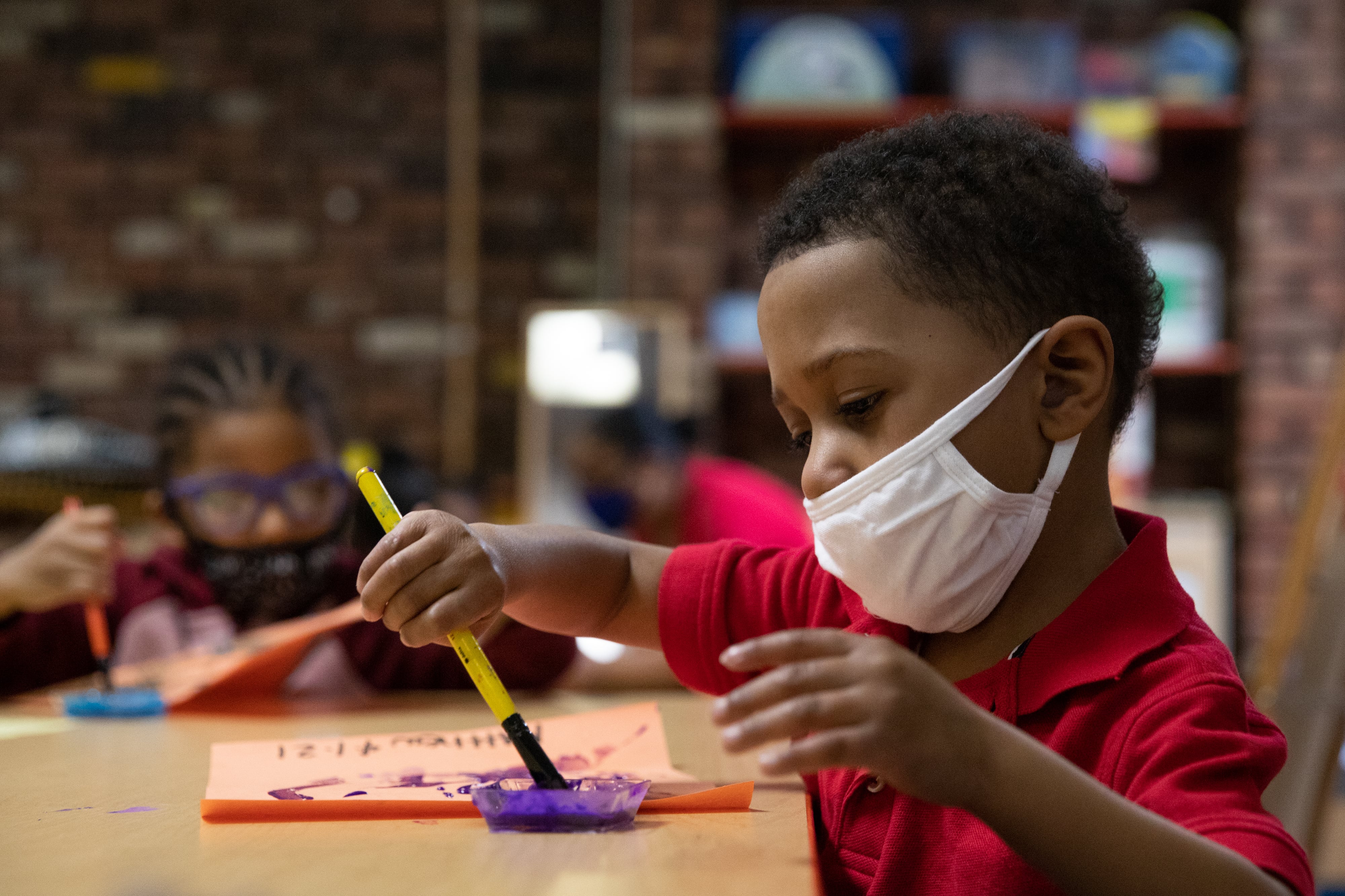Early educator Toya Taylor faced a dilemma. Earlier this summer, state leaders announced a major expansion of the Great Start Readiness Program, Michigan’s flagship free preschool program. Would she join?
Taylor, owner of Reign Development Center in Detroit, left the program years earlier, frustrated by needing state approval for her center’s budget.
“At the end of the year you’re like, ‘Man, I worked really hard, and I didn’t really get compensated’,” she said. “How can you drive the bus, do the marketing, be the lead teacher, and they say, ‘Oh, you can’t get paid for that’?”
GSRP is one of the largest and most reliable funding streams available to providers in low-income communities. Taylor, who began working in child care as a teenager, acknowledged that it improved the quality of education at her center, which opened in 2017. “High quality often equates with low or even no profits,” she said. “Business owners must ultimately make a very difficult decision.”
But, when local officials called this summer to ask if she’d take some of the new GSRP funds, she said yes. Enrollment at Reign had dropped due to COVID, cutting into the center’s bottom line. The new funding would help pay for teachers with bachelor’s degrees.
“As an owner, you want high quality, you want to pay your staff top dollar, so you don’t really have a choice,” she said.
Taylor’s decision won’t just bring more money to her center — it could also help steady the child care sector in Michigan’s lowest-income communities, which face twin risks from the pandemic and the potentially destabilizing effects of COVID relief funding.
If Taylor and her peers opt out of GSRP, they would likely end up caring for fewer 4-year-olds and more infants and toddlers. That would send their costs skyrocketing, since younger children require more intensive supervision and lower teacher-to-student ratios. The already fraught economics of providing child care in Michigan’s low-income communities could become untenable, potentially pushing veteran providers out of an industry that is already sorely short-staffed.
That’s one reason advocates scrambled to sign up community-based providers for GSRP when the state announced a plan to invest $168 million — a 67% increase — in the 36-year-old program this year.
In Wayne County, which contains Detroit, local officials launched a blitz of phone calls and advertisements aimed at private providers.
“That is where families go,” said Lena Montgomery, director of Early Childhood and English Learner services for Wayne RESA, an education agency that distributes GSRP funding in the county. “They are already using those sites for children who are infants and toddlers, and this allows them to continue their care in that environment.”
The efforts in Wayne County showed some initial success: Of the 55 new GSRP classrooms that have been added in the county so far, more than two-thirds are being run by private child care centers, with the rest going to school districts and charter schools.
But advocates say that the state should go much further to help community-based providers access GSRP funding.
Michigan requires that 30% of GSRP dollars go to private providers, but that’s a statewide average — many counties fall far below that mark. Some providers argue that the 30% requirement has effectively been treated as a cap, not a minimum.
Veteran private providers in Detroit often have deep community ties that set them apart from K-12 school districts, said Denise Smith, implementation director for Hope Starts Here, an early childhood initiative in the city.
Family engagement occurs more naturally in programs that specialize in young children, in part because these children need to be dropped off by a parent, she said. “More authentic engagement is happening in those spaces than is happening in” K-12 districts.
Far more community-based providers would be eligible for GSRP, Smith added, if the state allowed home-based child care operations to participate. Only larger centers with quality ratings of at least three stars out of five can currently apply for GSRP dollars.
Statewide data about where the GSRP expansion dollars are going won’t be available until October, when enrollment in the program is set to close.
No matter who receives the GSRP funds, advocates say the expansion — which is being fueled by federal COVID relief funds — is good news for Michigan 4-year-olds.
Previous funding increases for the program allowed classrooms to move to full-time instruction rather than half-day, but state leaders say the goal this time is to reach more kids — specifically the roughly 22,000 children who are eligible for the program but aren’t enrolled.
Several studies show that GSRP sends children to kindergarten with more knowledge than peers from similar backgrounds who didn’t attend the program. Researchers consistently praise the program for its use of research-based best practices, such as its requirement that teachers hold at least a bachelor’s degree. In 2018, a study of rising kindergartners showed that GSRP had produced larger gains in math than the six other states in the study.
GSRP is free to families earning less than 250% of the federal poverty line, or $66,250 for a family of four. But, participation isn’t mandatory. The program had roughly 64,000 seats statewide in 2019-20.
Plenty of challenges remain for Michigan’s early childhood sector. Enrollment declines have persisted in many centers throughout the pandemic. Many parents dropped out of the workforce over the last 18 months and can care for their children at home, and others are unwilling to risk a COVID infection for their children given the lack of a vaccine for children under 12.
Before the pandemic, some locations did not have enough classrooms to meet demand. Now, some providers report that filling the new GSRP slots has been a challenge.
“We’re seeing that a lot of children aren’t returning to the program right now,” said Kenosha Witherspoon, owner of Someplace Else Learning Factory in Detroit.
She was approved to open two GSRP classrooms for 32 children, but only six 4-year-olds have enrolled so far. She suspects that some parents with school-aged children are sending their 4-year-olds to school-based GSRP programs with their older siblings.
Enrollment is lower than pre-pandemic levels at Little Scholars Child Development Center, also in Detroit, but the director said she’s already seeing the benefits of the new funding. The center purchased a new curriculum, director Shirley Wright said, and GSRP will cover part of rent and expenses, freeing up money to hire highly qualified teachers.
While Wright said she’d like to see several changes to GSRP, such as allowing home-based child care providers to participate, her main critique is that the program doesn’t reach far enough.
“Why not 3-year-olds and 2-year-olds?” she asked. “What about starting even earlier?”







